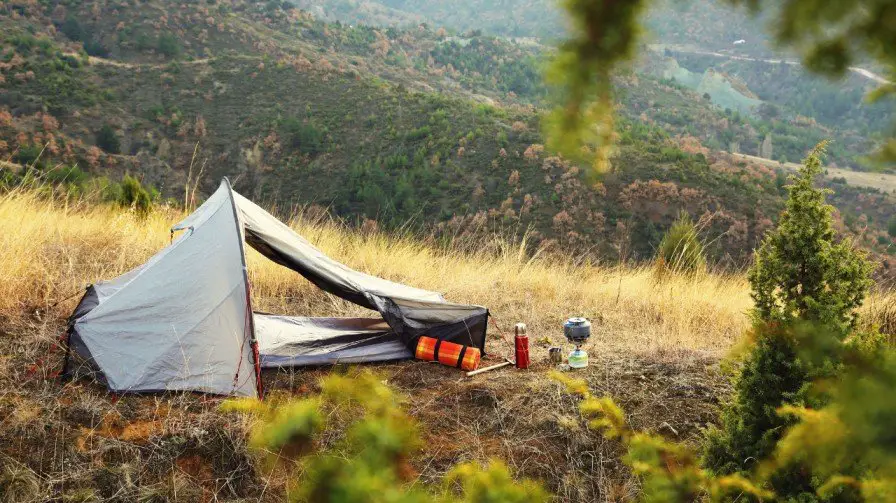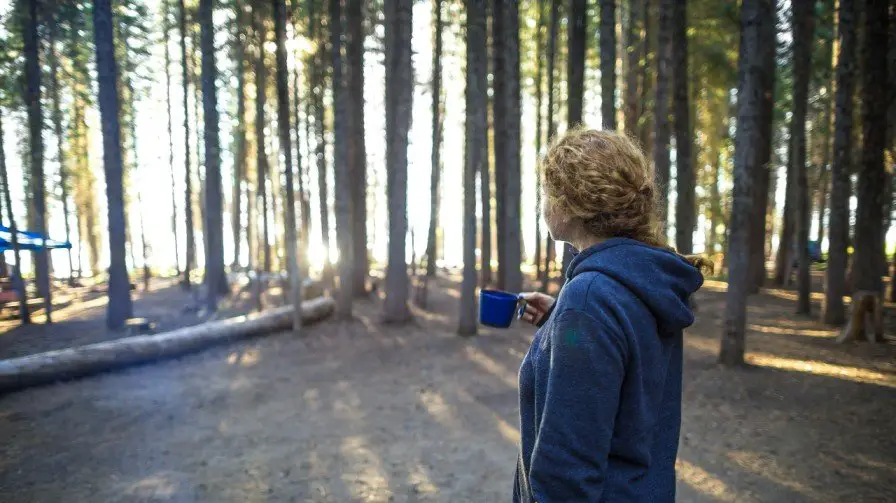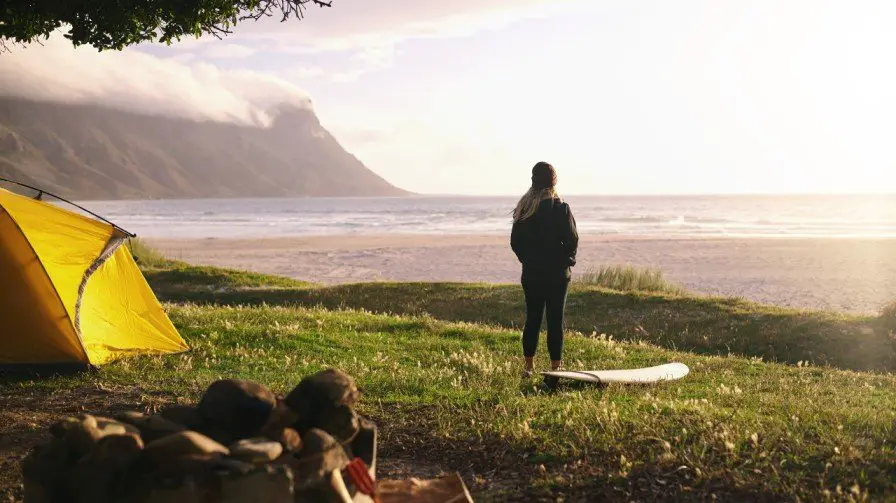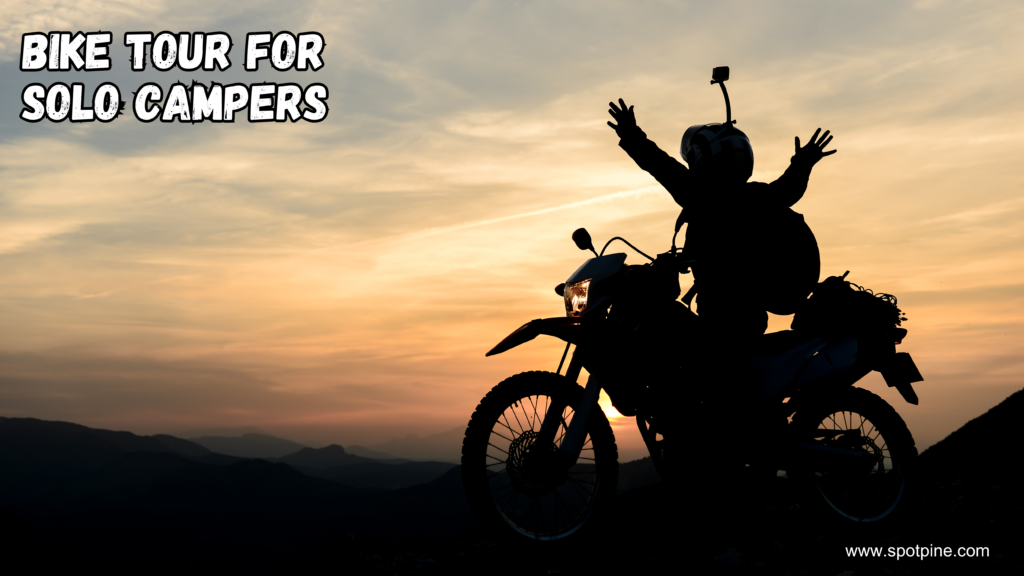Solo camping can be lonely, and it lacks the companionship and shared experiences of group camping trips. However, it offers solitude and a chance to connect with nature on a deeper level.
It can be a great way to recharge and have some alone time away from the hustle and bustle of daily life. Additionally, solo camping allows for flexibility in planning and itinerary, and it can be a rewarding and empowering experience.
Dispelling Myths About Solo Camping
Solo camping is often misunderstood, with many myths surrounding the activity. Dispelling these misconceptions can open new horizons to a world of adventure and self-discovery. Embracing the benefits of solo camping can be the key to unlocking a unique, enriching experience. Let’s debunk some common myths and explore the advantages of solo camping.
Common Misconceptions
Solo camping is often perceived as lonely and unsafe, deterring individuals from embarking on this extraordinary journey. Many mistakenly believe that solo camping is solely for the extremely adventurous. However, these misconceptions can hinder people from enjoying the numerous benefits solo camping has to offer.
Benefits Of Solo Camping
Solo camping provides an unparalleled opportunity for self-reflection, self-reliance, and connection with nature. It allows individuals to embrace solitude and escape the hustle and bustle of daily life. Moreover, solo camping enhances problem-solving skills and boosts confidence, fostering a deep sense of independence and empowerment.
1. Safety Concerns For Solo Camping
Solo camping can raise safety concerns, making some people hesitant to embrace this activity. Reasons for such concerns include potential loneliness, fear of the unknown, worry about wildlife encounters, and lack of assistance in emergencies. However, by following safety guidelines and being prepared, solo camping can still be a rewarding and enjoyable experience.
Addressing Common Fears
When it comes to solo camping, safety concerns are often at the forefront of many people’s minds. Addressing these common fears is crucial to ensure a comfortable and enjoyable camping experience. While it’s normal to be afraid, especially if you’re new to camping alone, taking the necessary safety precautions can help alleviate those worries and give you peace of mind.
Safety Precautions For Women Camping Alone
For women camping alone, it’s important to prioritize safety and take extra precautions. Here are some safety measures that can be particularly helpful:
- Choose a well-populated campground or park with good reviews and a strong security presence.
- Inform someone you trust about your camping plans, including your expected itinerary and when you plan to return.
- Consider investing in self-defense items such as pepper spray or a personal alarm.
- Set up your campsite in a well-lit area, preferably near other campers.
- Be cautious when interacting with strangers and trust your instincts.
- Lock your vehicle and keep valuable items out of sight.
- Stay aware of your surroundings and be prepared to react in case of any emergencies.
| Fears | Safety Precautions |
| Wild animals raiding the campsite | Follow recommended food storage practices and use bear-resistant containers if needed. Keep a safe distance from any wildlife encounters and do not approach or feed them. |
| Sleeping on rocks | Invest in a good quality sleeping pad or air mattress for added comfort and insulation. |
| Leaky tent | Choose a tent with good waterproofing capabilities and set it up properly to minimize the chances of leaks. |
| Poison ivy | Learn to identify poison ivy and avoid touching it. Wear long sleeves, pants, and gloves when exploring areas with dense vegetation. |
| Bugs | Bring effective insect repellents and consider using a bug net or tent with mesh windows to keep bugs at bay. |
By taking these safety precautions and familiarizing yourself with the potential risks and how to address them, you can confidently embark on your solo camping adventure. Remember, your safety is paramount, and it is essential to trust your instincts and prioritize your well-being at all times.
2. Overcoming Dislike Of Camping
Fear of bugs, sleeping uncomfortably, and encountering wild animals can deter campers.
Dislike of outdoor activities and discomfort from leaky tents are common reasons.
- 1. Camp in a Hammock for elevated comfort and safety.
- 2. Spread Mountain Lion Scat to deter wild animals from approaching.
- 3. Bring a Guard Dog like Rex for added security and companionship.
- 4. Utilize a Liquid Fence to create a barrier around your campsite.
- 5. Assure friends of your preparedness to boost confidence in your camping skills.
- 6. Engage in entertainment like watching movies on your smartphone for relaxation.
- 7. Start by camping in your backyard to ease into solo camping.
- 8. Consider bringing your dog for added safety and companionship during your camping trip.

3. Solo Camping Experience
If you’re hesitant about solo camping, you’re not alone. Many people feel apprehensive due to safety concerns, solitude, or fears of the unknown. However, with proper planning, knowledge, and preparation, solo camping can be a rewarding and liberating experience.
Embracing Solitude In The Outdoors
Solo camping provides a unique opportunity to connect with nature on a deeper level, away from the hustle and bustle of everyday life. With no distractions, you can embrace the solitude and tranquility of the outdoors.
Personal Experiences Of Solo Campers
Many solo campers find solace in the simplicity of nature, allowing them to recharge and reflect without the need for constant interaction. Personal growth and self-discovery are common themes among those who venture into the wilderness alone.
Challenges And Rewards Of Camping Alone
While solo camping may come with its challenges such as facing fears of the unknown or dealing with unexpected situations, the rewards are invaluable. From conquering personal fears to gaining independence and self-reliance, camping alone offers a sense of accomplishment like no other.
4. Community Insights On Solo Camping
Despite the tranquility and self-reflection, the barriers of solo camping can be overwhelming. Reasons like encountering wildlife, lack of companionship, and safety concerns deter many enthusiasts. Overcoming these fears and planning meticulously can help solo campers enjoy the solitude and beauty of nature.
Reddit Communities And Concerns
Reddit plays a significant role in sharing experiences and concerns related to solo camping. Users engage in discussions on various subreddits dedicated to camping, where they express their fears, seek guidance, and share their solo camping stories.
Real-life Experiences And Fears
In real-life scenarios, individuals often face fears such as being alone in the wilderness, encountering wild animals, or feeling vulnerable at night. These experiences contribute to the reluctance some people feel towards solo camping.
5. Tips For Safe And Enjoyable Solo Camping
Enhance your solo camping experience with these tips. Stay safe by informing someone of your location and carry emergency supplies. Embrace the tranquility of nature and indulge in self-discovery while camping alone.
Essential Packing Lists
When embarking on a solo camping adventure, packing the right gear is essential for a safe and enjoyable experience. It’s crucial to prioritize the following items in your packing list:
- Weather-appropriate clothing and footwear
- High-quality tent and sleeping gear
- Portable stove and cooking essentials
- First-aid kit and emergency supplies
- Maps, compass, and navigation tools
Navigating Safety Concerns
Safety should be the top priority when camping alone in the wilderness. You should be well-prepared for potential safety concerns by:
- Informing someone of your itinerary and expected return
- Learning basic first-aid and wilderness survival skills
- Being aware of local wildlife and their behaviors
- Keeping emergency contacts and communication devices handy
Maximizing Enjoyment Through Preparedness
Preparation can significantly enhance your solo camping experience. Consider these tips for maximizing enjoyment:
- Engaging in pre-trip physical conditioning for stamina
- Learning about local flora, fauna, and stargazing opportunities
- Skillfully preparing delicious and nutritious camping meals
- Planning for leisure activities like hiking, bird-watching, or photography

6. Solo Camping Stories And Lessons
Discover the 7 reasons why you might not love solo camping. From bugs and uncomfortable sleeping conditions to feeling lonely, this article explores the challenges of camping alone. Learn how to overcome your fears and make the most of your solo camping experience.
Memorable Solo Camping Experiences
Recounting solo camping experiences often reveals an array of unforgettable moments. The first night spent alone in the wilderness under a sky shimmering with stars, the serenading of nocturnal creatures melding with the rustling of leaves – these are the memories that stick with you. Solo camping often presents the opportunity for introspection and connection with nature in ways that group outings cannot. The euphoria of conquering fears and the peacefulness of being in tune with the environment are truly cherished stories.
Challenges Overcome During Solo Camping
Challenges confronted during solo camping are diverse, and overcoming them leaves an indelible mark. From grappling with the intense solitude to mastering survival skills, each obstacle adds a layer of resilience. The experiences act as an empowering reminder of individual strength and adaptability. Crossing paths with unexpected creatures or weathering a storm in solitude are stories that showcase the perseverance of solo campers.
Learnings And Reflections
The profound insights gained through solo camping are invaluable. Reflecting on these experiences often leads to personal growth and newfound wisdom. Learning to trust instincts, honing outdoor skills, and appreciating the beauty of solitude are just a few of the many life lessons solo camping imparts. The narratives of self-discovery and introspection shared by individuals who have embarked on solo camping expeditions are a testament to the transformative nature of the experience.
7. Solo Camping: Making It Routine
Embarking on solo camping may feel daunting, but overcoming barriers can lead to a routine adventure. Reasons for hesitancy may include fear of loneliness, safety concerns, and unfamiliarity. By addressing these reservations, camping solo can evolve into a fulfilling and liberating experience.
Transitioning To Solo Camping By Choice
Transitioning to solo camping by choice can be a rewarding experience. It allows you to have complete control over your camping adventure and embrace the freedom that comes with it. Whether you are an experienced camper or new to camping, solo camping can open up a whole new world of exploration and self-discovery.
Building Confidence In Camping Alone
Building confidence in camping alone is an essential step in making solo camping a routine. It is normal to have concerns and fears about camping alone, but taking the necessary precautions can help alleviate those worries. Here are a few tips to build confidence in camping alone:
- Start with short trips: Begin by taking shorter camping trips to nearby locations. This will allow you to become familiar with the process of setting up camp and navigating the outdoors on your own.
- Research and plan: Before embarking on a solo camping trip, thoroughly research the area you plan to visit. Familiarize yourself with the terrain, weather conditions, and any potential hazards.
- Master camping skills: Hone your camping skills by practicing setting up a tent, starting a fire, and cooking outdoors. The more confident you feel in your abilities, the more comfortable you will be during solo camping trips.
- Stay connected: While solo camping is about solitude, it is important to stay connected with loved ones. Share your camping itinerary with someone you trust and check in regularly to ensure your safety.
- Trust your instincts: Instincts play a crucial role in solo camping. Learn to trust your gut feelings and make decisions accordingly, especially when it comes to personal safety.
With practice and experience, you will gradually build confidence in camping alone, allowing you to fully enjoy the benefits of solo camping.
Solo camping may not be everyone’s cup of tea, but it offers unique benefits that group camping trips simply cannot provide. It allows for solitude and introspection, giving you the opportunity to reconnect with nature and yourself. While it is normal to have fears and concerns, following safety practices and using common sense can make solo camping a rewarding and transformative experience.
So, don’t let the reasons you don’t love solo camping hold you back from trying it out and embracing the beauty of being in the wilderness alone.
FAQs:
Is Solo Camping Lonely?
Solo camping doesn’t have to be lonely. It offers solitude and a chance to disconnect.
Is It Safe For A Single Woman To Camp Alone?
Yes, it is safe for a single woman to camp alone as long as she follows best safety practices, uses common sense, and listens to her intuition. It is normal to feel afraid, especially if it’s your first time camping solo, but with proper precautions, you will most likely be fine.
Why Don’t You Like Camping?
I prefer modern comforts over camping due to bugs, uncomfortable sleeping arrangements, and lack of interest in outdoor activities.
How Do I Stop Being Scared Of Camping Alone?
To stop being scared of camping alone, start with short solo trips, stay aware of your surroundings, carry safety gear, and trust your instincts.



